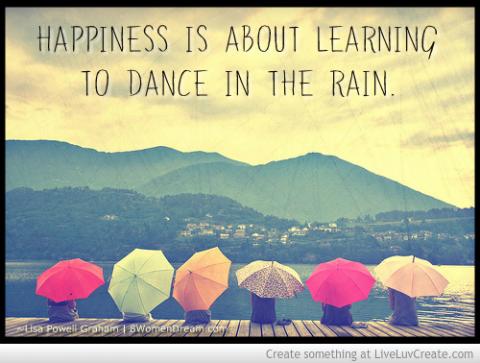Depression In College Students
Mar 21,2023
Statistics show that 45.1% of college students struggle to function with depression. Statistics also show that 66% of college students are battling anxiety.
Depression in college students is something that is becoming more well-known. This is because more and more college students are coming forward with this problem.
Young adults, in general, are facing more mental challenges than ever before. It is understandable that mental health and college can be significantly impacted.
Keep reading to find out why there is so much depression in college students.
Why Are College Students Depressed?
College is a time of life that comes with conflicting definitions. For some people, college is a time to party and enjoy spending time with friends.
For others, college is a time when they are separated from their friends and family. They may struggle with the workload and struggle to maintain good grades.
College is a weird time of life where students are between stages. They're not treated like adults, but they are adults with those adult responsibilities.
Many college students struggle with their mental health during this time. They may struggle with feelings of hopelessness as they look at their future.
They may also feel disconnected from others and all by themselves. Some of these issues can be contributed to life skills they were never taught.
More and more children are entering adulthood without any training from their parents. They don’t have the necessary life skills to navigate this time in their life.
This can make them feel overwhelmed and hopeless about their future. There’s also a strong social pressure of being high achieving and perfect.
A lot is resting on a college education, which can be very stressful. Students may feel like they aren’t measuring up or that they are failing in these areas.
Are College Students Anxious?
There is also plenty of evidence that shows college students struggling with anxiety. Anxiety and depression in college students often go hand-in-hand with the same sources.
Depression can cause anxiety and vice versa in most people. Anxiety can also be triggered by similar concerns that cause depression.
Many students would admit to feeling anxious about their future and their career. Once they get to college, the future becomes real, as well as their future responsibilities.
This comes with a lot of overwhelming emotions that can be scary. Students are suddenly confronted with the fact that they are adults and they have to take care of themselves.
College is also very high maintenance and comes with a lot of responsibilities. They have to stay on top of their courses and maintain good college grades.
Many students may also be juggling family and friends as well as a job on this side. All of these things can contribute to them feeling overwhelmed and anxious.
Keep in mind that anxiety and stress are not the same things. It is very normal for college students to feel stressed off and on.
This is a normal response to having to work as much as they do and get good grades. But anxiety is much more severe and can even become debilitating.
Symptoms of Depression in College Students
Depression in college students can often go unnoticed. Almost half of the students that feel this way avoid seeking help.
This contributes to college suicide as students don’t get the help that they need. Suicidal students may fall between the cracks and feel the effects of being forgotten.
That is why it is so important to understand the signs of depression. It will look different for everyone, but there are a few things you can look for specifically.
If you are able to catch the signs, it can be life-saving for some students. It can also help everyone on the campus to feel like they are being looked out for.
Overwhelmed
Students who are suffering from depression will often feel overwhelmed. This may become noticeable if they look frazzled or upset during the day.
They may struggle to get their work done or get it turned in on time. The quality of their work will also start to slip in most instances.
These students will often struggle to find time to socialize and even take care of themselves. They may stop exercising, and their eating habits may become unpredictable.
Lack of Motivation
One of the most common symptoms of depression is a lack of motivation. Unfortunately, this is also one of the most misunderstood symptoms.
It is very easy to look at college students and think that they should just do what they need to do. After all, college is not as difficult as working and having a family.
But the reality is that depression is real, and it can be debilitating. Most people lose interest in things that they used to love or find important in their life.
This often results in them not completing their courses or doing a bad job. They may show up to class late or appear very lackluster during their classes.
They may even lose all interest in outside extracurricular activities. They may not feel like hanging out with friends or even communicating with their family.
This is a severe sign of depression that should not be ignored or misinterpreted. They are not intentionally trying to be lazy, this is just another sign of depression.
Self Isolation
Those with depression often struggle to connect with other people. They may feel ashamed of themselves and not know how to communicate with friends and family.
They may also feel unmotivated to upkeep those relationships they once treasured. This is very common in suicidal students who don’t have much hope for the future.
They will most likely disconnect from people and start to spend more time on their own. They will often stay indoors and avoid going out if at all possible.
This is something that you should watch for in students who are usually more extroverted. This is common for introverts, but other students may not have originally been like this.
That is why you have to take each student's personality into account. Not every student is going to show the same signs, and they may not be as severe.
Lack of Energy
A physical sign of depression in college students is fatigue. Depression can drain them of all their energy and leave them feeling empty inside.
They may feel emotionally and physically drained. This can make it very difficult to get daily tasks done or focus on anything.
They may have a small attention span or struggle to comprehend basic ideas. They may start sleeping more and taking naps throughout the day.
If this is unusual for them, you need to help them out. Fatigue can often lead to even more depression as they feel unable to do anything.
It can damage their confidence and leave them feeling like they’re worthless.
Excessive Emotions
Depression also shows itself as excessive emotions. Students may struggle to suppress what they are feeling or control how they are feeling.
They may burst into tears or may become very angry. These emotions are a symptom of the much deeper feeling of depression that they have.
This can also show itself if they are irritable or stressed out.
How to Help Students With Depression
If you know that college students are dealing with depression, there are a few things you can do. This is something that needs to be addressed as it is only getting worse.
Young people are experiencing more emotional issues than ever before. Some of this is about society and other external factors that affect them.
Focus on Prevention
The most important way to treat depression is prevention. Preventing depression in college students has to start when they are young.
They need to be given realistic expectations of what college is like. They should also be told that they are not always going to excel in this area.
Parents need to begin teaching their children life skills at a very early age. This will contribute in a huge way to helping them with their mental health later on.
Encourage Campus Activities
Colleges need to focus on having activities on campus. Many students feel like they go unseen, especially if it is a larger college.
There needs to be activities and programs available that they can join. These activities can focus on mental health or building confidence.
They also give students an opportunity to connect with others and express their feelings.
Offer Mental Health Care
Every college campus needs to have mental health care available. This is an absolute necessity that is vital to helping students with this issue.
There should be therapists available that students can talk to. They should be able to prescribe medications and write notes if students need time off from their classes.
This is also a good aspect to advertise to let students know that it is available. This will help to show them that mental health is a priority and there is no shame in it.
Avoid Stigma
Many college students avoid seeking help because they are embarrassed. They may feel embarrassed that they are depressed or they don’t know how to express their feelings.
They may be afraid that their peers will look down on them if they seek help. Or they may be concerned that their teachers will not take them seriously.
There are many reasons why students avoid seeking help when they are depressed. This is because there is a stigma around depression and how it affects students.
This can leave them feeling like they are on their own without any help. Campuses need to work hard to make sure the stigma is not present.
They can do this by talking about mental health regularly and making therapy widely available.
Get Positive Reinforcement
Many college students work very hard and receive very little positive feedback. As you become an adult, positive feedback often becomes very rare.
The only kind of feedback you may get is if it is negative feedback. This can start to negatively impact people over time as they only ever hear bad things.
That is why positive reinforcement is so important for college students. You need to let them know when they are doing a good job and when they have excelled.
This will help lighten the load of any negative feedback they are getting. It will help them to not feel as though they are failing everything that they are trying to do.
Don't Shame Them
Students may avoid coming forward because they are afraid of being shamed. Some people shame students if they are depressed because they say they have no reason to be.
The reality is that anyone from any walk of life can become depressed. There are external factors that contribute to this, but sometimes people have a greater tendency towards it.
That is why campuses need to be a shame-free zone when it comes to mental health.
Depression in College Students: What to Do
Something that is becoming a big issue is depression in college students. Mental health struggles are common, but they seem to be becoming a bigger issue.
More and more students are coming forward because of their mental health. That is why colleges need to take this seriously and offer options for them.
Are you interested in your college education and your future career? Contact us today at Honor Society for more college student resources.

b860.jpg?itok=xDjDsuzx)



